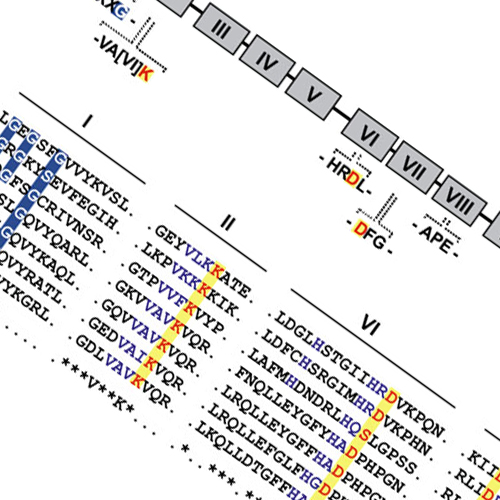Chloroplast-localized protein kinases: a step forward towards a complete inventory
25-Jan-2012
Journal of Experimental Botany, 2012, doi: 10.1093/jxb/err377, Vol. 63, No. 4, pp. 1713–1723, published on 25.01.2012
Journal of Experimental Botany, online article
In addition to redox regulation, protein phosphorylation has gained increasing importance as a regulatory principle in chloroplasts in recent years. However, only very few chloroplast-localized protein kinases have been identified to date. Protein phosphorylation regulates important chloroplast processes such as photosynthesis or transcription. In order to better understand chloroplast function, it is therefore crucial to obtain a complete picture of the chloroplast kinome, which is currently constrained by two effects: first, recent observations showed that the bioinformatics-based prediction of chloroplast-localized protein kinases from available sequence data is strongly biased; and, secondly, protein kinases are of very low abundance, which makes their identification by proteomics approaches extremely difficult. Therefore, the aim of this study was to obtain a complete list of chloroplast-localized protein kinases from different species. Evaluation of protein kinases which were either highly predicted to be chloroplast localized or have been identified in different chloroplast proteomic studies resulted in the confirmation of only three new kinases. Considering also all reports of experimentally verified chloroplast protein kinases to date, compelling evidence was found for a total set of 15 chloroplast-localized protein kinases in different species. This is in contrast to a much higher number that would be expected based on targeting prediction or on the general abundance of protein kinases in relation to the entire proteome. Moreover, it is shown that unusual protein kinases with differing ATP-binding sites or catalytic centres seem to occur frequently within the chloroplast kinome, thus making their identification by mass spectrometry-based approaches even more difficult due to a different annotation.











